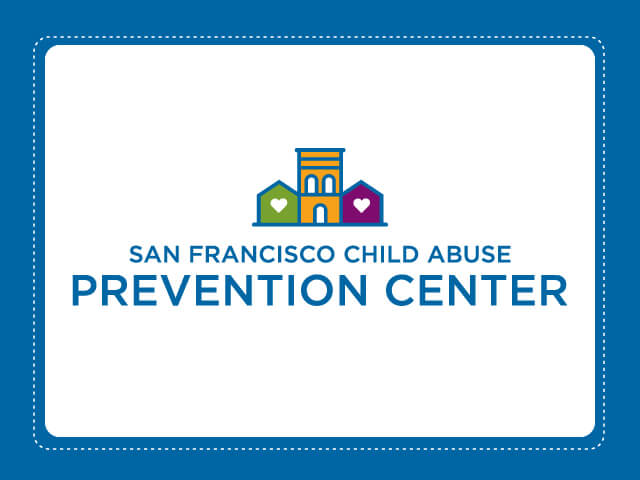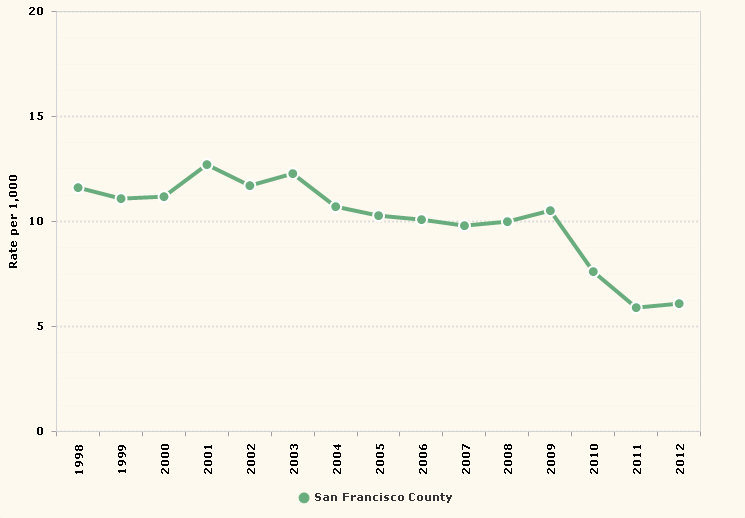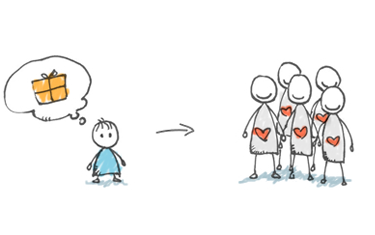By Lauren Gonzalves
For 40 years, the San Francisco Child Abuse Prevention Center (SF CAPC) “TALK (Telephone Aid in Living with Kids) Line” has been helping overwhelmed and often under-supported mothers and fathers cope with the stress of parenthood and all the issues that accompany raising a child.
The innovation of the San Francisco Child Abuse Council and Dr. Moses Grossman, former chief of pediatrics at San Francisco General Hospital, the TALK Line began offering a 24-hour crisis line for parents in duress in 1973.

The San Francisco Child Abuse Prevention Center is dedicated to ending child abuse and building stronger families. Photo Credit: sfcapc.org
The Parental Stress Line, as it is also called, is now led by a clinical team of professionals and staffed by an even larger collection of dedicated and well-trained volunteer counselors. Often, the TALK Line may be the last straw unbroken before a parent abuses a child out of frustration or neglects one due to lack of sufficient income and/or time.
The hotline carries a long legacy of “listening to” but “not advising” parents in need.

SF CAPC works closely with a variety of professionals, parent advisors, volunteers, and supporters to meet the needs of San Francisco’s most vulnerable families. Photo Credit: sfcapc.org
Volunteer counselors are trained to field initial calls to the line, and they or SFCAPC staff will often follow up with callers. There are between 12,000 and 16,000 combined incoming and outgoing calls with parents each year, according to the organization.
Multiple follow-up calls and decade-long relationships between volunteers and parents are not uncommon, said Daniel Sapoznick, a trained clinical social worker and the Director of the TALK Line Program.
Sapoznick says that what makes the TALK Line such a exceptional resource is “ the opportunity to call into a parental stress line like ours and talk to a volunteer counselor whose sole job is to sit there and hear what’s happening and try their best to understand and connect with that person in an empathic way…that is a pretty unique experience for people.”
He explained that many of families calling into the TALK Line have histories of dealing with child protective services (CPS), and other mandated assistance, where help was not offered but compulsory.
“Parents who call us have had systemic intervention that is very forced…‘this is what you’ve done wrong, this is what you need to do differently or you will have your children taken away’,” said Sapoznick.
At TALK Line, counselors are patient and supportive, and parents have the option to end the call at any time.
So, what are the top reasons parents call into the hotline? According to both Yip and Sapoznick, “parenting issues, child’s behavior, and family conflict” are the three most common concerns for which calls are made.
Under that umbrella of reasons, parents’ worries ranged from putting food on the table to being on the verge of raising a hand to his or her child. All are motivations to call into the TALK Line.
The line is one component of SFCAPC’s overall mission to prevention of child abuse and neglect, the promotion of healthy families and the mental health of children. Larry Yip, director of children and family services at SFCAPC, says the nonprofit keeps children safe by promoting protective factors for parents.
“Sometimes there’s little we can do about a family’s risk factors,” Yip said. “A risk factor for child abuse is having a kid under five; we can’t change that. A kid with disabilities, we can’t change that either. So instead of looking at it from a risk perspective, we look at it from a strength’s perspective, from a protective-factor perspective.”
Parental resiliency, knowledge of parenting and child development, social networks, material supports in times of need, and child social and emotional competence (such as children hitting developmental milestones) are the five key protective factors Yip said can prevent child maltreatment and preserve the family unit.
There is not universal agreement on the notion that those five factors are foremost in stemming abuse and neglect. Researchers Emily Putnam-Hornstein of University of Southern California, Barbara Needell of University of California-Berkeley, and Anne Rhodes of University of Toronto recently published a joint study examining the risk factors for child abuse as well as protective factors for both children and families. The study found that, “protective factors that promote resilience among children and families, despite profound adversities, remain unknown” in the scientific community.

Reports of substantiated abuse have gone down in San Francisco County over the last decade. Photo credit: kidsdata.org
When talk line discussions reveal that there might already be a dangerous situation at home, volunteer counselors are not “mandated reporters” abuse but are trained to assess risk and will share crucial information about the families with their supervisors when they believe further intervention may be needed. Sapoznick said that they do have to make reports to CPS, but parents are informed that such a report could be made and the hope is that the relationship will continue.
“CPS doesn’t always appreciate it,” Sapoznik said, “but we advocate for our own call out to the family” so they don’t feel blindsided by what is to come.
Sapoznick says what the TALK Line, and its volunteer counselors, can offer a kind of intensity and unbroken attention that may not be “tenable” for full-time clinicians. And after years of that same parent calling into the same volunteer, Sapoznick says, “that counselor has become surrogate family in a way”.
Lauren Gonzalves is a graduate student at UC Berkeley’s School of Social Welfare. She wrote this story as part of Fostering Media Connections’ Journalism for Social Change program.





